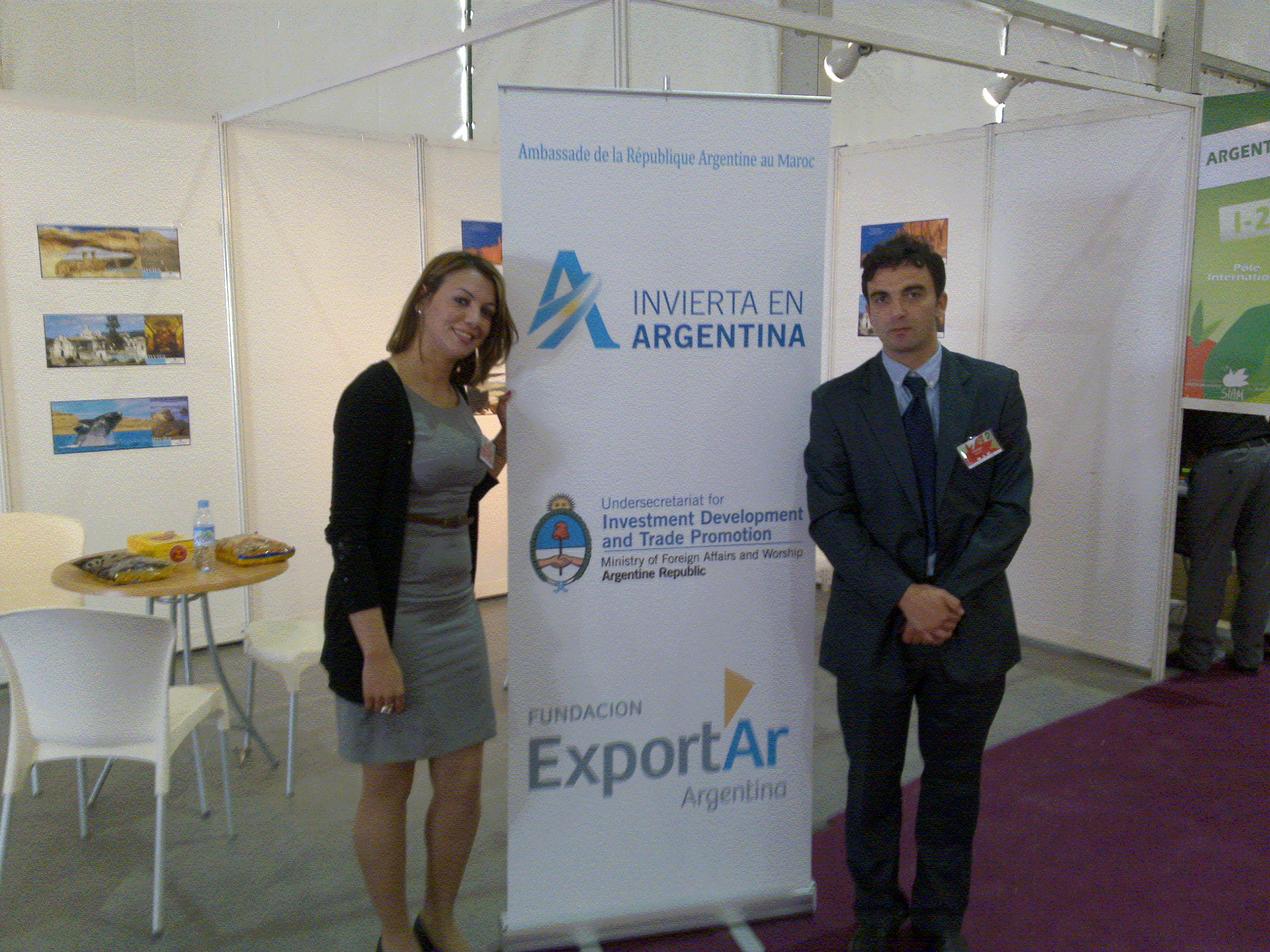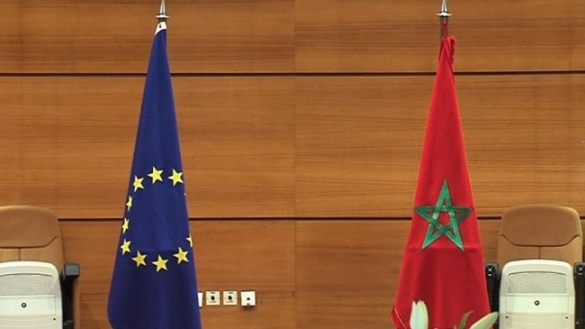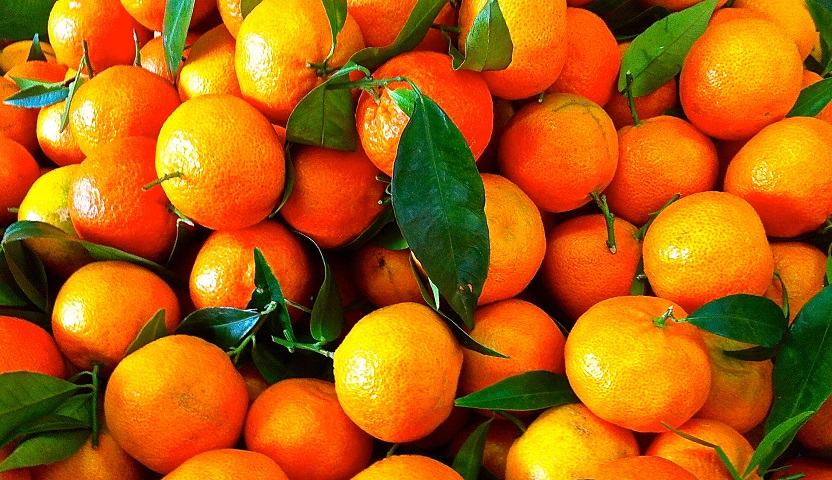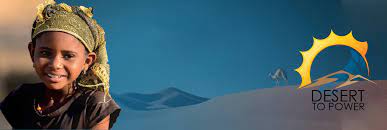Morocco, the world’s largest producer of phosphate, and Argentina, an agricultural power, would benefit from increasing trade.

Foreign investors are gnashing their teeth as Argentina defaulted on its sovereign debt for the eighth time in its history – but not all of them. Whilst Buenos Aires’ financial problems threaten to worsen regional trade, it is unlikely to affect commercial relations with countries such as Morocco.
“I really don’t think that Argentina’s financial situation would have an impact on the bilateral relations with Morocco. This is very special situation because despite this fact [being in default], the Argentine economy is healthy,” says Fouad Yazourh, Ambassador of Morocco in Argentina.
Bilateral trade
The Moroccan Export Promotion Center and its Argentinean counterpart inked agreements on trade, fisheries and cooperation. Other bilateral cooperation agreements focused on agriculture, the equipment sector, diplomacy and sports.
In 2004, MERCOSUR states (Argentina, Brazil, Paraguay, Uruguay and Venezuela) signed a framework trade agreement with Morocco to negotiate for a free trade agreement. This trade bloc in Latin America promotes the free movement of goods, services and people among member states.
Yet, 10 years later, trade between Argentina and Morocco remains modest and irregular with a chronic deficit at the expense of the kingdom, notwithstanding multiple trade opportunities.
Morocco’s exportations to the South American nation plummeted – from US$103 in 2012 to US$28 million in 2013, according to the National Council on Foreign Trade (CNCE), a think-tank based in Rabat. Morocco’s importations from Argentina decreased as well – from US$573 million in 2012 to US$434 million in 2013.
“With its inflation, Argentina is in the process of import substitution industrialization [a trade policy advocating the replacement of foreign imports with domestic production]. The objective of the current government is to import less from all countries to protect the local economy, like raw materials and the manufacture sector,” explains Walid Al Kaddour, Secretary of the Chamber of Argentine-Arab Commerce in Buenos Aires.
Comparatively, Argentina exported about US$484 million to Morocco and imported almost US$45 million from the kingdom in 2013, according to the Chamber’s statistics.
The CNCE indicates that Morocco purchases mostly grains from Argentina with importations reaching US$193,5 million in 2013, about 35% of total importations. Argentina is Morocco’s fourth provider of cereals.
Residues and food industry wastes represent approximately 23% of total importations with US175,7 million in 2013. The kingdom also imports greases, animal and vegetable oils, meat and edible offal, mineral fuels and mineral oils.
On the other hand, the South American country buys mainly fertilizers from Morocco – 98.1% of total exportations reaching US$41.3 million in 2013. Despite holding about two-thirds of the world’s phosphate reserves, Morocco was Argentina’s sixth supplier of fertilizers in 2013 after Mexico, Venezuela and China.
“In principle, the potential of both countries could make one think that Argentina and Morocco have strong commercial ties. Yet, despite excellent diplomatic relations, Moroccan and Argentine businessmen have traded with nations more conveniently located and with a linguistic proximity,” admits Ambassador Yazourh.
Morocco’s principal trading partners are France and Spain – former colonial powers. Argentina’s are MERCOSUR countries.
“The growth of bilateral trade is not as high we wish. Our businessmen prefer to trade with Europe, Africa or the Arab world because it is closer and they already have consolidated partnerships in those countries,” he adds.
Win-win exchange
Nevertheless, Argentina and Morocco provide one another numerous benefits. For the kingdom, Argentina represents an important market of 41 million consumers.
“Products from both countries do not compete directly – although some agricultural goods are sold in both countries –because there are different markets,” says Ambassador Yazourh.
The South American nation also gives access to MERCOSUR nations, the “Common Market of the South.”
An ocean away, Morocco is the door to North African, European and Arab markets. It has access to the Atlantic Ocean and the Mediterranean Sea.
“Morocco is a strategic place and it is Argentina’s third destination for exports in the Arab world, after Algeria, Saudi Arabia and Egypt. For example, Argentina exports more to Morocco than the United Arab Emirates,” says Mr. Al Kaddour.
In addition, about one fifth of Moroccans speak Spanish. Although there are not any official statistics, about 10,000 Spaniards immigrated to the kingdom following the on-going economic crisis in Spain.
Most importantly, Morocco produced 50,000 billion tons of phosphate in 2012 compared to 3,700 billion tons for the world’s second supplier – China – according to the International Fertilizer Development Center, a United-States based international organization tackling global issues like food security.
This natural resource is essential as the planet’s food supplies are alarmingly dependent on phosphate fertilizers that are applied to crops. With a world population growing and hence consuming more grains, meat and biofuels, demand for phosphate is expected to rise.
Besides, phosphate reserves are declining almost everywhere except in Morocco. Phosphate resources in the United States, which produces 17% of global supply, have decreased in the last decade, for instance.
“We hope that phosphate trade will evolve into a more solid partnership –like with Brazil where we installed a factory in Morocco to transform phosphate into fertilizers – to help the agriculture of a power like Argentina,” says Ambassador Yazourh.
Commercial exchange with Brazil is indeed more important. In 2013, the Cherifien Office of Phosphates Group – a state-owned company and one of the world’s major exporters of crude phosphate –bought 50% of the shares of Bunge Limited, a Brazilian group in their joint venture Bunge Morocco Phosphore. It specializes in the production of fertilizers and phosphate-based products for Bunge’s subsidiaries in Latin America.
“Argentina’s relation with Morocco is likely to grow in the next few years just like the relation between South America and the Arab world. South America is a major food producer in the world whereas the [Middle East and North Africa] region has a growing population,” says Mr. Al Kaddour.
Maintaining strong bonds
Argentina and Morocco established diplomatic ties in 1960.“It is a new conception of South-South cooperation. This does not mean that we are against the North. On the contrary, this cooperation happens with the North but without its diktat because countries from the South have distinct dynamics, cultures of human rights and paces of reform,” explains Ambassador Yazourh.


